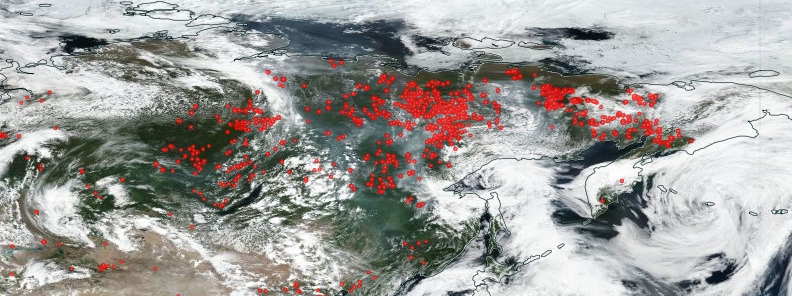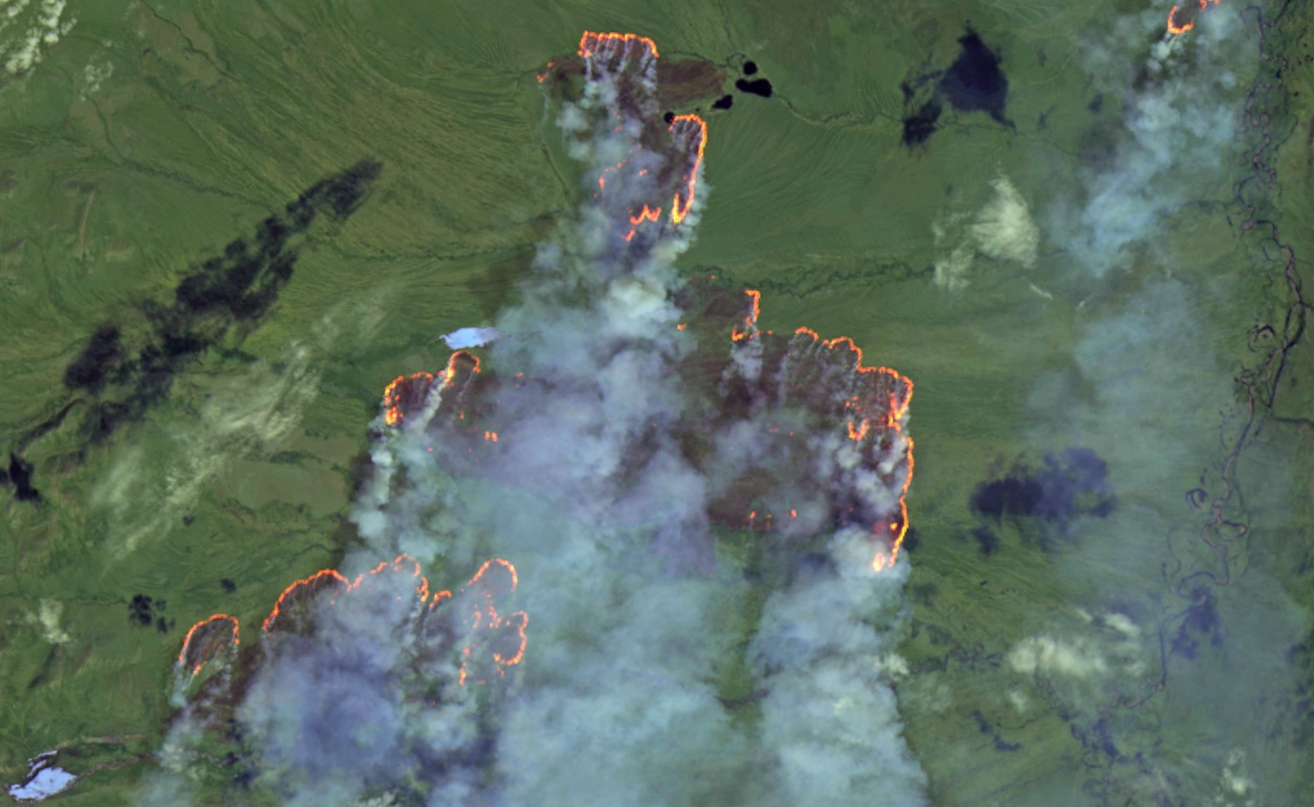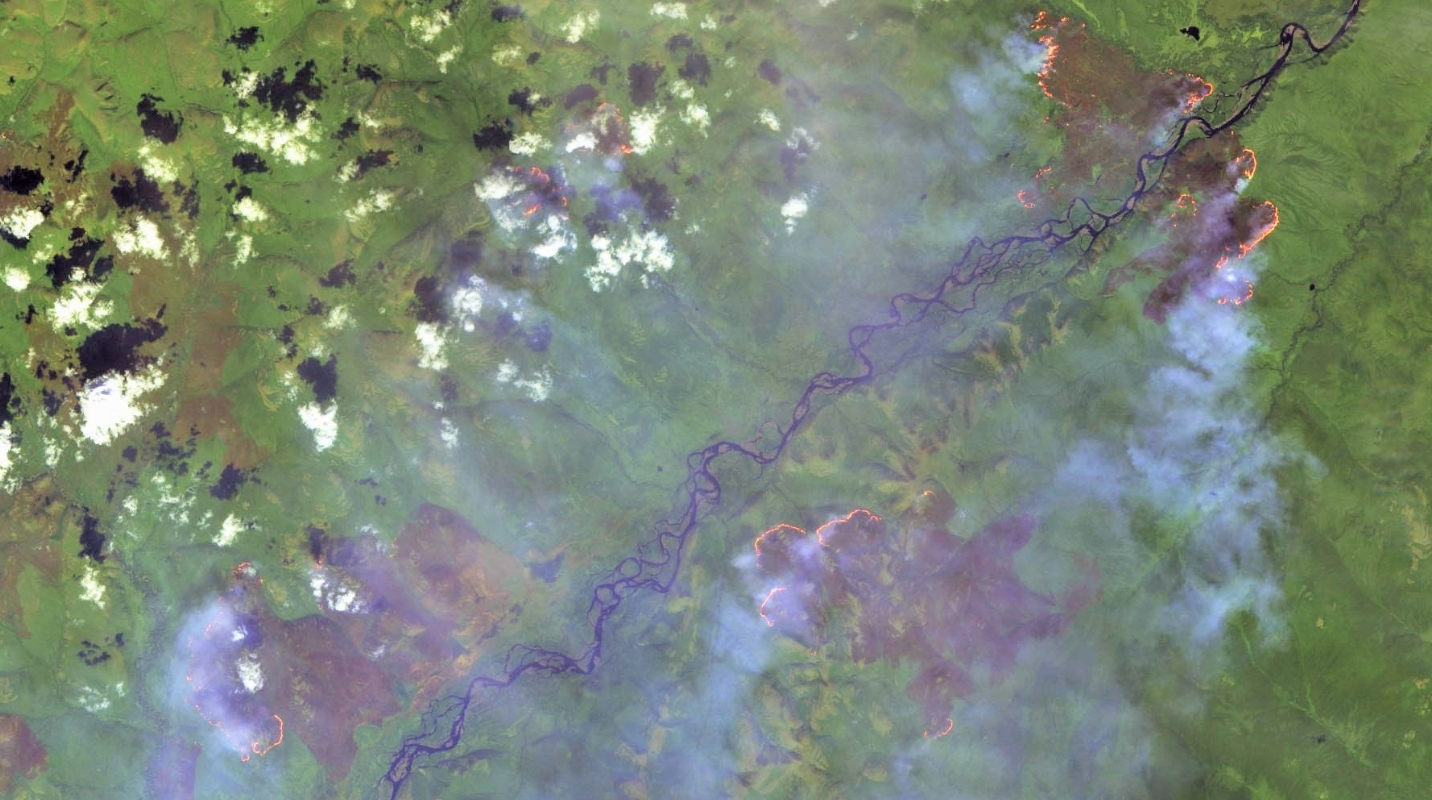Wildfires in Siberia increase five-fold amid unprecedented heatwave

Wildfires in Siberia have grown five-fold over the past week amid an unprecedented heatwave, according to Russia's forest fire aerial protection service. This came after the town of Verkhoyansk hit 38 °C (100.4 °F), marking the hottest-ever temperature recorded above the Arctic Circle. The record was verified by Russia's state weather authority on June 30.
"From above, Siberia looks like a smoky wasteland," said meteorologist Dakota Smith, a scientist at the Cooperative Institute for Research in the Atmosphere (CIRA).
"Tough to see because of the clouds, but there is an insane number of fires over a massive area," he added, describing that it was "one large blanket of smoke."
Tough to see because of the clouds, but there are an insane number of fires over a massive area.
One large blanket of smoke. pic.twitter.com/WjRu5PMXfr
— Dakota Smith (@weatherdak) June 30, 2020
According to figures reported by Russian aerial forest fire management Avialesookhrana, about 1.2 million ha (2.9 million acres) are burning in Siberia in areas unaccessible to firefighters, as of Saturday, June 27.
In the Sakha Republic, where Verkhoyansk is located, up to 929 000 ha (2.3 million acres) are on fire.
From June 18 to 28, 2020, the maximum temperature in Verkhoyansk exceeded 30 °C (86 °F), with a peak on June 20 at 38 °C (100.4 °F) — marking the hottest-ever temperature recorded above the Arctic Circle. The average June 2020 temperature in Verkhojansk was 19.2 °C (66.5 °F), the warmest since records began.
The heatwave in the region continues to date.
В Верхоянске с 18 по 28 июня 2020 г. максимальная температура превышала 30°, и находилась в интервале от 31,4° до 35,2° с пиком 20 июня до 38,0°. Июнь-2020 в Верхоянске со средней температурой 19,2° стал самым теплым в истории.#жаравАрктике #Якутияhttps://t.co/qYebrTXIVd pic.twitter.com/p8Etzramru
— Гидрометцентр России (@meteoinfo_ru) June 30, 2020

Two impressive Arctic wildfires near frozen water in Siberia on June 30. Image credit: Copernicus EU/Sentinel-2, Antonio Vecoli
Jonathan Overpeck, University of Michigan environmental school dean, told the Associated Press that the situation in the Arctic region is unprecedented.
"The Arctic is figuratively and literally on fire," he wrote.

Six growing wildfires along 40 km (25 miles) of the Bytantaj River in Siberia on July 1. Image credit: Copernicus EU/Sentinel-2, Antonio Vecoli
Aleksey Yaroshenko, the head of the forest program of the Russian branch of Greenpeace, said containing the fires may be impossible at the moment.
"Even if we throw all our efforts at [putting out the fires], it is already impossible."
"The situation is the same as last year. We are at the foot of the peak of fires, and have already noted a very sharp increase," Yaroshenko added.

Featured image credit: Copernicus EU/Sentinel-2, Antonio Vecoli

THE INCREASE OF MAGNETIC RADIATIONS (SOLAR-COSMIC RADIATIONS) IS THE REASON FOR THE INCREASE OF WILDFIRES……………………….The increase of wildfires around the globe is caused by the enormous increase of lightning. On the other hand, the increase of lightning is due to the increase of magnetic radiations (cosmic rays and intense solar radiations). I have explained this issue in details in my research article, HELICAL SUN that was published with NEXUS Magazine. “Jamal S. Shrair examines the Sun’s position above the galactic equator and concludes that its spiraling up phase is approaching its limit and this is having a major impact on Earth’s current climate, creating massive Earth changes including extreme wildfires.” https://nexusmagazine.com/product/the-helical-sun/?v=35b5282113b8
The increase of wildfires around the globe is caused by the enormous increase of lightning. On the other hand, the increase of lightning is due to the increase of cosmic rays. I have explained this issue in details in my research article, HELICAL SUN that was published with NEXUS Magazine. https://nexusmagazine.com/product/the-helical-sun/?v=35b5282113b8